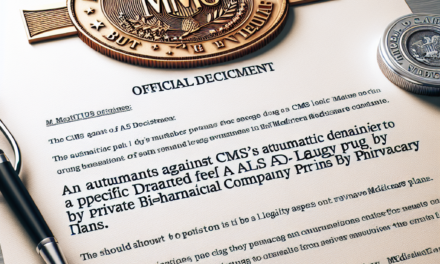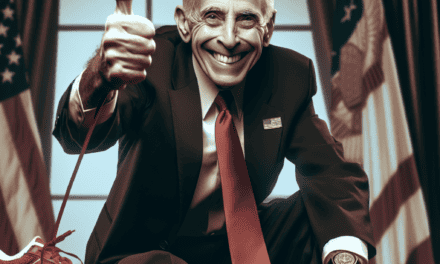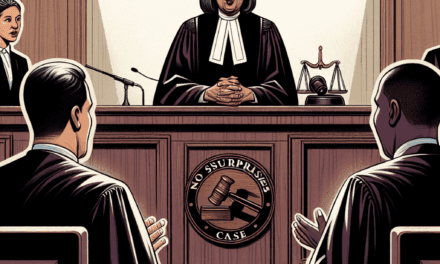Tragic Shooting: UnitedHealthcare CEO Brian Thompson Killed in NYC
The tragic shooting of Brian Thompson, the CEO of UnitedHealthcare, in New York City has sent shockwaves through the healthcare industry and beyond. This incident not only highlights the ongoing issues of gun violence in America but also raises questions about the safety of public figures and the broader implications for the healthcare sector. In this article, we will explore the circumstances surrounding Thompson’s death, the impact on UnitedHealthcare and the healthcare industry, the broader context of gun violence in the U.S., and the responses from various stakeholders.
The Circumstances of the Shooting
On a fateful evening in October 2023, Brian Thompson was shot while attending a charity event in Manhattan. The event, which was aimed at raising funds for mental health initiatives, took a tragic turn when an unidentified assailant opened fire. Witnesses reported a chaotic scene as attendees scrambled for safety, and emergency services were called to the scene within minutes.
Thompson was rushed to a nearby hospital, but despite the best efforts of medical personnel, he succumbed to his injuries shortly after arrival. The news of his death spread rapidly, leading to an outpouring of grief from colleagues, friends, and the healthcare community at large.
Law enforcement officials quickly launched an investigation into the shooting, seeking to identify the shooter and understand the motive behind this senseless act of violence. Initial reports suggested that the assailant may have had a personal vendetta against Thompson, although this has yet to be confirmed.
The incident has raised significant concerns about safety at public events, particularly those attended by high-profile individuals. Security measures at such events are often scrutinized, and this tragedy has prompted calls for increased security protocols to protect attendees.
The Impact on UnitedHealthcare
Brian Thompson was a prominent figure in the healthcare industry, having led UnitedHealthcare through significant changes and challenges. His death has left a leadership void within the organization, prompting questions about the future direction of the company.
UnitedHealthcare, one of the largest health insurance providers in the United States, has been at the forefront of healthcare innovation and reform. Under Thompson’s leadership, the company focused on expanding access to care, improving patient outcomes, and leveraging technology to enhance service delivery. His vision for the company was characterized by a commitment to social responsibility and community health.
In the wake of Thompson’s death, UnitedHealthcare has expressed its deep sorrow and commitment to honoring his legacy. The company has pledged to continue its mission of providing quality healthcare and supporting initiatives that align with Thompson’s values.
Moreover, the leadership team at UnitedHealthcare is now faced with the challenge of navigating this crisis while maintaining stability within the organization. The board of directors is expected to convene to discuss succession planning and the strategic direction of the company moving forward.
- Leadership Transition: The immediate need for a new CEO and the potential for interim leadership.
- Company Culture: How Thompson’s leadership style and values shaped the company culture.
- Stakeholder Reactions: Responses from employees, investors, and partners regarding the leadership change.
- Future Initiatives: Plans for continuing Thompson’s initiatives in community health and innovation.
- Public Relations Strategy: How UnitedHealthcare will manage its public image in light of this tragedy.
The Broader Context of Gun Violence in America
The shooting of Brian Thompson is a stark reminder of the pervasive issue of gun violence in the United States. According to the Gun Violence Archive, there have been thousands of incidents of gun violence in the U.S. in recent years, resulting in significant loss of life and injury. The statistics are alarming:
- In 2022 alone, there were over 600 mass shootings in the U.S.
- Gun-related deaths have increased by nearly 25% over the past decade.
- Approximately 40% of gun deaths are suicides, highlighting the mental health crisis intertwined with gun violence.
The impact of gun violence extends beyond the immediate victims; it affects families, communities, and the healthcare system. Hospitals and emergency services are often overwhelmed by the number of gunshot victims, leading to increased healthcare costs and resource allocation challenges.
Moreover, the psychological toll of gun violence cannot be understated. Survivors and witnesses often experience long-term mental health issues, including PTSD, anxiety, and depression. This tragedy has reignited discussions about the need for comprehensive gun control measures and mental health support systems.
Advocates for gun control argue that stricter regulations are necessary to prevent such incidents from occurring in the future. They point to successful models in other countries that have implemented effective gun control measures, resulting in lower rates of gun violence. However, the debate remains contentious, with strong opposition from gun rights advocates who argue for the protection of Second Amendment rights.
Reactions from the Healthcare Community
The healthcare community has been deeply affected by the news of Brian Thompson’s death. Colleagues and peers have expressed their condolences and shared memories of Thompson’s contributions to the field. Many have highlighted his commitment to improving healthcare access and outcomes for underserved populations.
In the days following the shooting, various healthcare organizations and leaders have issued statements condemning gun violence and calling for action. The American Medical Association (AMA) released a statement emphasizing the need for comprehensive gun safety measures and increased funding for mental health services.
Additionally, healthcare professionals have taken to social media to share their thoughts on the tragedy. Many have called for a collective effort to address the root causes of gun violence, including mental health issues, socioeconomic disparities, and access to firearms.
- Advocacy for Change: How healthcare leaders are mobilizing to advocate for gun control and mental health initiatives.
- Community Support: Initiatives launched by healthcare organizations to support victims of gun violence.
- Educational Campaigns: Efforts to raise awareness about the impact of gun violence on public health.
- Collaboration with Lawmakers: Engaging with policymakers to promote evidence-based solutions.
- Long-term Strategies: Developing comprehensive approaches to prevent gun violence in communities.
The Future of Gun Violence Prevention Efforts
The tragic shooting of Brian Thompson has underscored the urgent need for effective gun violence prevention strategies. As communities grapple with the aftermath of such incidents, it is essential to explore comprehensive approaches that address the multifaceted nature of gun violence.
One potential avenue for change is the implementation of evidence-based policies that have been shown to reduce gun violence. These may include:
- Universal Background Checks: Ensuring that all gun purchasers undergo thorough background checks to prevent firearms from falling into the wrong hands.
- Red Flag Laws: Allowing law enforcement to temporarily remove firearms from individuals deemed a threat to themselves or others.
- Investment in Mental Health Services: Increasing funding for mental health programs to address the underlying issues that contribute to gun violence.
- Community-Based Interventions: Supporting grassroots organizations that work to reduce violence in high-risk communities.
- Public Awareness Campaigns: Educating the public about the risks associated with gun ownership and promoting safe storage practices.
Furthermore, collaboration between healthcare providers, law enforcement, and community organizations is crucial in developing a comprehensive strategy to combat gun violence. By working together, stakeholders can create a safer environment for all individuals, particularly those in vulnerable communities.
Conclusion
The tragic shooting of Brian Thompson, CEO of UnitedHealthcare, serves as a painful reminder of the ongoing crisis of gun violence in America. His death has left a significant void in the healthcare industry and has prompted urgent discussions about safety, leadership, and the need for systemic change.
As we reflect on this tragedy, it is essential to recognize the broader implications for public health and safety. The healthcare community must come together to advocate for effective gun violence prevention measures and support initiatives that address the root causes of this epidemic.
In honoring Brian Thompson’s legacy, we must commit to creating a safer future for all individuals, ensuring that no one else has to endure the pain and loss caused by senseless acts of violence. The time for action is now, and it is imperative that we work collectively to foster a culture of safety, compassion, and understanding in our communities.




